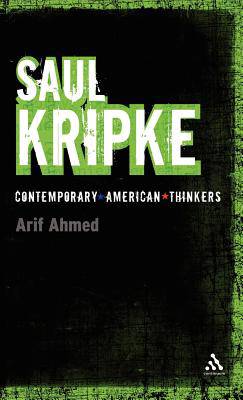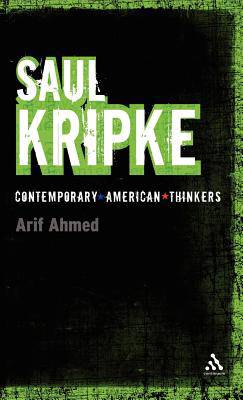
- Afhalen na 1 uur in een winkel met voorraad
- Gratis thuislevering in België vanaf € 30
- Ruim aanbod met 7 miljoen producten
- Afhalen na 1 uur in een winkel met voorraad
- Gratis thuislevering in België vanaf € 30
- Ruim aanbod met 7 miljoen producten
Omschrijving
Saul Kripke is one of the most important and original post-war analytic philosophers. His work has undeniably had a profound impact on the philosophy of language and the philosophy of mind. Yet his ideas are amongst the most challenging frequently encountered by students of philosophy. In this informative and accessible book, Arif Ahmed provides a clear and thorough account of Kripke's philosophy, his major works and ideas, providing an ideal guide to the important and complex thought of this key philosopher. The book offers a detailed review of his two major works, Naming and Necessity and Wittgenstein on Rules and Private Language, and explores how Kripke's ideas often seem to overturn widely accepted views and even perceptions of common sense. Geared towards the specific requirements of students who need to reach a sound understanding of Kripke's thought, the book provides a cogent and reliable survey of the nature and significance of Kripke's contribution to philosophy. This is the ideal companion to the study of this most influential and challenging of philosophers.
Specificaties
Betrokkenen
- Auteur(s):
- Uitgeverij:
Inhoud
- Aantal bladzijden:
- 192
- Taal:
- Engels
- Reeks:
Eigenschappen
- Productcode (EAN):
- 9780826492616
- Verschijningsdatum:
- 9/08/2007
- Uitvoering:
- Hardcover
- Formaat:
- Genaaid
- Afmetingen:
- 140 mm x 216 mm
- Gewicht:
- 390 g

Alleen bij Standaard Boekhandel
Beoordelingen
We publiceren alleen reviews die voldoen aan de voorwaarden voor reviews. Bekijk onze voorwaarden voor reviews.







